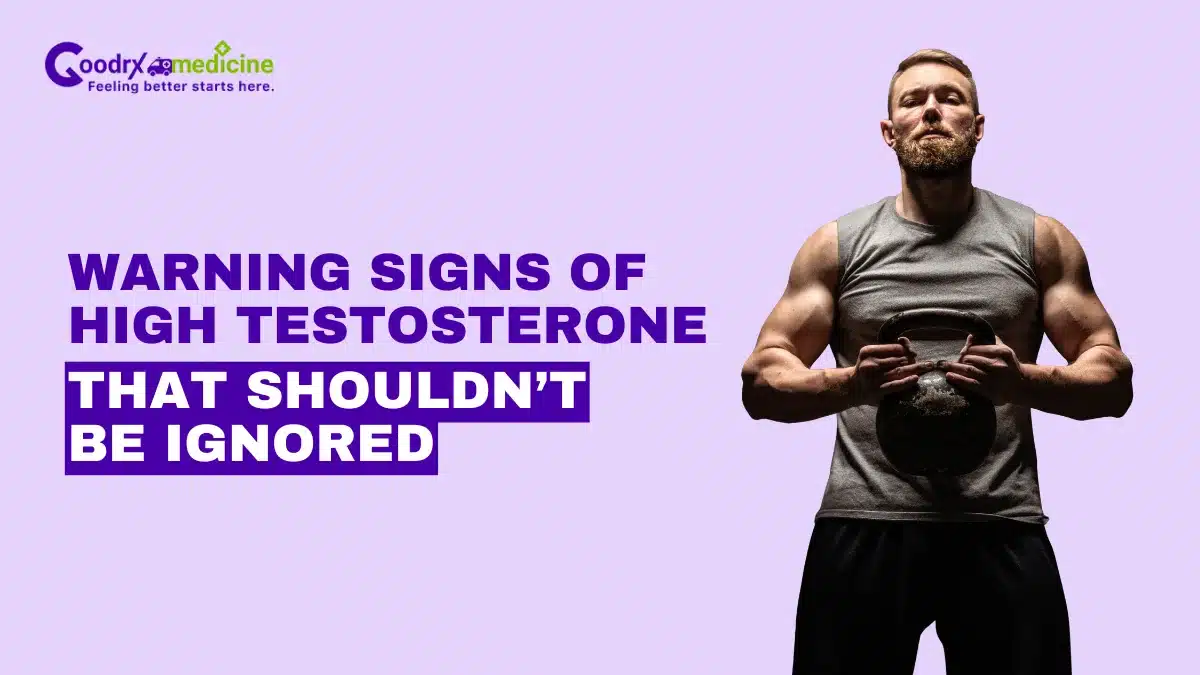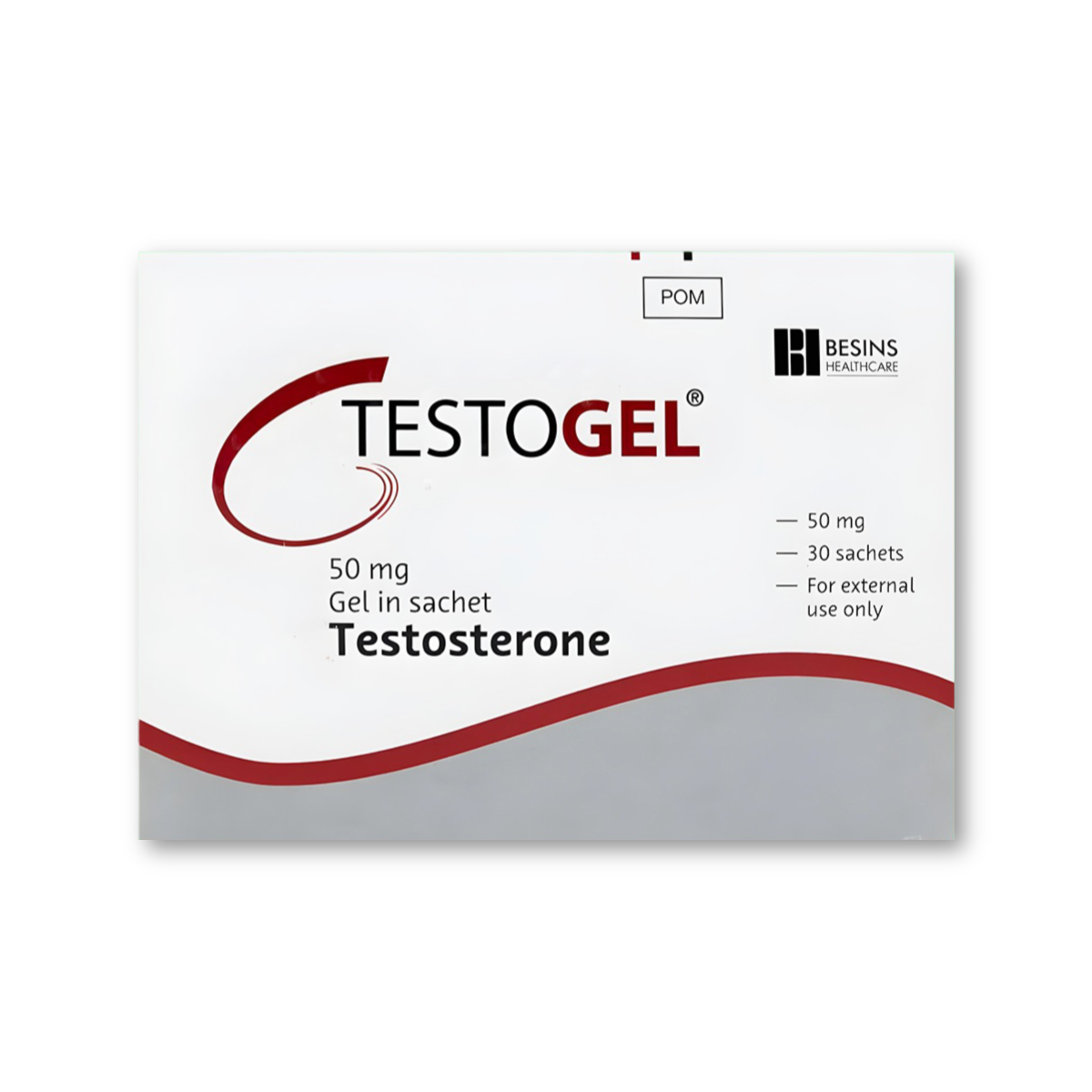Have you ever thought about what High Testosterone looks like in daily life? While Testosterone is primarily associated with masculinity and strength, an excess of it can have unexpected effects on your body, mind, and general health.
The signs of High Testosterone range from sudden bursts of energy and increased muscle mass to unexpected mood changes or acne outbreaks, and they are not always easy to identify. Understanding these signs isn’t just a matter of curiosity; it may provide significant insights about your body’s specific chemistry and overall well-being.
In this blog, we will explore some common signs suggesting higher-than-average Testosterone, which helps you better understand your body and what it is trying to tell you.
Understanding Testosterone levels
Testosterone is an androgen or sex hormone. It is mainly produced in the testes in males or Assigned Males at Birth (AMAB. It plays a key role in sperm production, libido, muscle growth, bone density, and the development of male secondary sexual characteristics.
Although Testosterone is mainly a male hormone, it is also produced by the ovaries and adrenal glands of women or Assigned Females at Birth (AFAB), but in lower quantities. It contributes to bone strength, muscular mass, and sex drive. In men, 300-1,000 nanograms per deciliter (ng/dL) or 10-35 nanomoles per liter (nmol/L) of Testosterone is considered normal.
Normal Testosterone levels in women are 15–70 ng/dL, or 0.5–2.4 nmol/L. Testosterone levels above this are regarded as high. Normal Testosterone levels vary significantly depending on age, gender, and health. Polycystic Ovary Syndrome (PCOS) is the major cause of high levels of the hormone in women. What is considered high in women may be normal or even low in men.
Signs of high Testosterone in a woman
Women’s Testosterone levels are normally lower, so a rise often leads to more visible and distinctive symptoms. Signs of High Testosterone in women may include:
- Hirsutism (excessive body and facial hair): This is one of the most prevalent and uncomfortable symptoms. Women may develop coarse, black hair in male-typical patterns on the upper lip, chin, jawline, chest, back, and belly.
- Acne and oily skin: High Testosterone levels cause the sebaceous glands to create more sebum, resulting in oily skin and chronic acne outbreaks.
- Irregular or absent menstruation (Oligomenorrhea or Amenorrhea): Elevated Testosterone may disrupt the delicate hormonal balance essential for regular ovulation and menstruation, resulting in irregular or missed periods or even the absence of periods.
- Hair thinning or male-pattern baldness (Androgenic Alopecia): Despite encouraging body hair growth, elevated Testosterone levels can cause hair loss on the scalp, imitating male-pattern baldness.
- Voice deepening: As the vocal cords thicken over time, the voice can become more masculine and lower-pitched.
- Infertility: Women with High Testosterone may have difficulty conceiving due to disruptions in their menstrual cycle and ovulation.
- Low libido: In certain cases, elevated Testosterone levels might lead to reduced sexual desire or low libido.
- Decreased breast size: As Testosterone levels rise, breast tissue may shrink.
- Weight gain: Hormonal imbalances, such as excessive Testosterone, can alter metabolism and appetite levels, resulting in weight gain, particularly around the abdomen.
- Mood swings and irritability: Although mostly associated with Low Testosterone levels, excess Testosterone can also affect brain neurotransmitters, leading to increased irritability, aggressiveness, and mood swings.
- Enlarged clitoris (Clitoromegaly): This is a rare but significant indicator of virilization (development of male characteristics).
Signs of high Testosterone in a man
While High Testosterone is less prevalent in males than in women, it can still cause symptoms, especially if the levels are abnormally high or the result of external causes, such as anabolic steroid usage or Testosterone Replacement Therapy (TRT). Signs of high Testosterone levels in males may include:
- Acne, oily skin: Similar to women, increased sebum production can result in oily skin and acne outbreaks.
- Mood swings and increased aggression: Often referred to as roid rage in cases of anabolic steroid abuse, elevated Testosterone can lead to heightened irritability and aggressive behavior.
- Hair thinning or male-pattern baldness (Androgenic Alopecia): While Testosterone is necessary for hair development, high levels, particularly of its strong derivative Dihydrotestosterone (DHT), may accelerate male pattern baldness in genetically susceptible people.
- Prostate enlargement (Benign Prostatic Hyperplasia): High Testosterone levels can promote prostate gland enlargement, resulting in urinary symptoms, including frequent urination, a weak stream, or trouble starting urination.
- Sleep Apnea: High Testosterone levels in men have been related to an increased risk or worsening of Sleep Apnea (a common problem that happens when your breathing pauses and resumes many times while you sleep).
- Increased red blood cell count (Polycythemia): High Testosterone levels can accelerate the formation of red blood cells, potentially resulting in thicker blood and an increased risk of blood clots.
- High Blood Pressure (Hypertension): Increased Testosterone levels can lead to cardiovascular problems, particularly Hypertension.
Managing signs of higher Testosterone
Although High Testosterone isn’t always dangerous, long-term imbalance can harm your health, especially if an underlying issue causes it. The following strategies can help you restore your Testosterone levels to normal:
- Stop or avoid using Testosterone supplements unless recommended.
- Eat a balanced, hormone-friendly diet that includes whole grains, leafy vegetables, berries, and oily seafood. Limit your red meat, processed meals, and high-fat dairy products intake.
- Maintain your body weight, as Obesity can impair hormone control.
- Chronic stress boosts Cortisol levels, which affects Testosterone balance. Yoga, meditation, or deep breathing practices can help manage stress.
- In some cases, excessive alcohol or caffeine use may affect Testosterone levels. Maintain a modest or minimum level of intake.
- Attain 7 to 9 hours of uninterrupted sleep, as poor sleep could worsen hormone abnormalities.
- Spearmint tea and licorice root may slightly lower Testosterone levels. However, always consult a doctor before using herbal remedies.
- Instead of doing intensive weightlifting, focus on gentle cardio, walking, or yoga, as overtraining might temporarily raise Testosterone levels.
- Polycystic Ovary Syndrome (PCOS), adrenal tumors, and thyroid disorders can all cause Testosterone levels to rise. Treating them can restore hormone levels to normal.

Conclusion
Recognizing the signs of High Testosterone will help you understand your overall health and hormonal balance. While certain characteristics, such as greater muscle mass, confidence, and desire, appear to be positive, excessive Testosterone can also cause mood swings, acne, aggressive behavior, and long-term health problems, such as heart disease or infertility.
It’s essential to remember that symptoms differ from person to person and may overlap with other disorders. If you detect any odd physical, emotional, or behavioral changes that excessive Testosterone levels may cause, you should visit a healthcare specialist.
If necessary, they can assist you with proper testing and treatment. Achieving hormonal balance is essential for physical, emotional, and mental health.
Frequently Asked Questions
Can High Testosterone levels cause a change in body odor?
Yes, elevated Testosterone levels can cause more sweating and oil production, resulting in greater or more severe body odor. This occurs because androgens, such as Testosterone, induce sweat glands to become more active.
Can elevated Testosterone levels induce a strong sex urge in women?
Yes, women with High Testosterone levels may have a considerable increase in sexual desire. While this might feel good, it can also cause emotional imbalance or distress if it gets too much.
Can excessive Testosterone cause infertility in men?
Yes. While Testosterone increases sex drive, high levels, particularly from external sources such as steroids, can limit sperm production and cause infertility by altering natural hormone signals. Consult your doctor for fertility-related issues.
Is the deepening of the voice in men usually associated with increased Testosterone?
No, not necessarily. Voice deepening is natural during puberty due to Testosterone, but alterations later in life are more likely to be caused by vocal strain, age, or medical concerns than by hormone surges.
Can High Testosterone levels be temporary?
Yes. Stress, intensive exercises, or supplements can all cause short-term rises in Testosterone levels. While temporary fluctuations may be harmless, persistently elevated levels should be carefully addressed.
When referencing outside resources, GoodrxMedicine always provides full citations. To learn more about the measures we use to maintain the quality of our content, please review our Content Information Policy.















